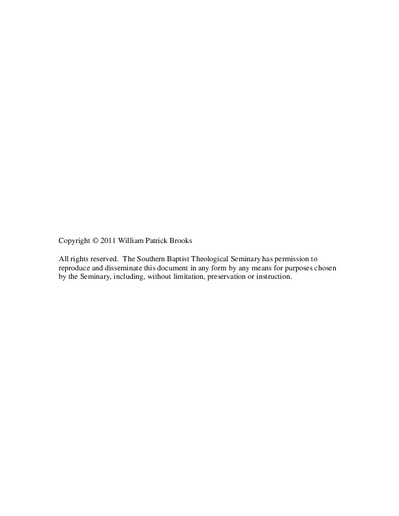Critiquing Ethnohermeneutics Theories: A Call for an Author-Oriented Approach to Cross-Cultural Biblical Interpretation
Subject
Bible--Criticism, interpretation, etc.Hermeneutics
Christianity and culture
Christianity and other religions
Missions--Theory
Abstract
This dissertation examines ethnohermeneutics theories and proposes an alternative view to cross-cultural interpretation. Chapter 1 introduces the study by examining the topic of ethnohermeneutics and its development out of the indigenous movement. For the sake of clarity, key terms are defined. The project background, methodology, and the limitations and delimitations are also stated in this chapter.
Chapter 2 gives a history of the ethnohermeneutics theories of interpretation. This chapter examines the modern hermeneutics theories and the contemporary missiological discussions related to indigenization and contextualization that laid the groundwork for the development of theories related to ethnohermeneutics.
Chapter 3 is an evaluation of ethnohermeneutics theories of interpretation. It provides an overview of these theories by examining the writings of the major proponents and stating the strengths and weaknesses of these approaches.
Chapter 4 provides an alternative model for cross-cultural hermeneutics. This chapter explains the importance of authorial intent to biblical interpretation. It examines the steps involved in determining and applying the author's meaning and an interpreter undertakes those steps in places where there is a lack of resources or the people are primary oral learners.
Chapter 5 applies the alternative model to the East Asian context. It examines the East Asian context and the difficulties that arise when conducting biblical interpretation in this region of the world, and then the model for cross-cultural interpretation will be implemented by examining three texts of Scripture and the ways they apply in this context.
Chapter 6 serves as the conclusion and summarizes the study. It discusses why training in hermeneutics is important to discipleship in missiological contexts and explains the implications of this study to other areas of hermeneutics.

